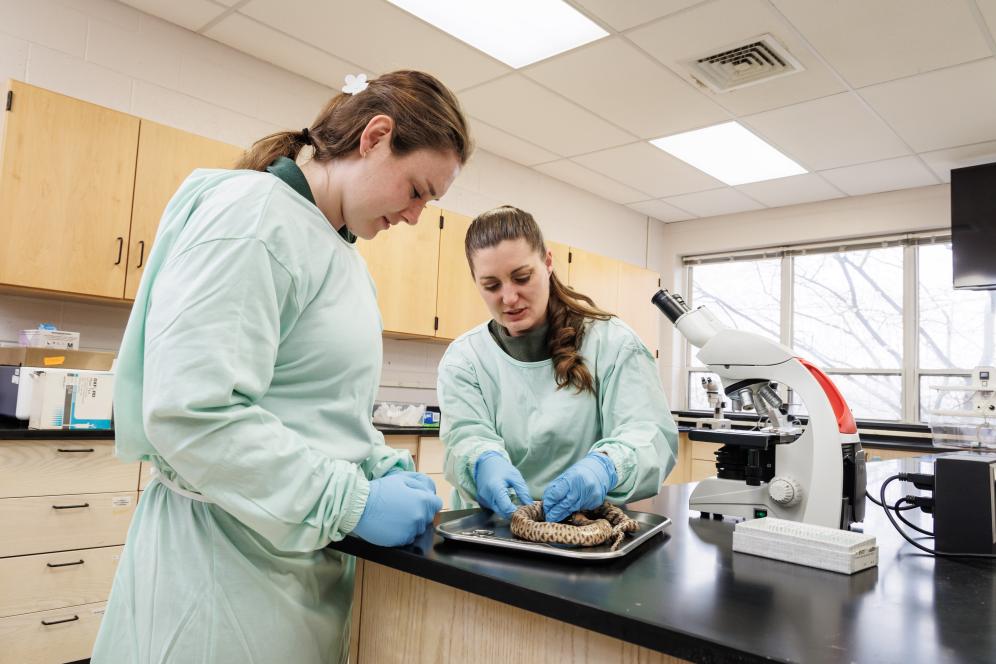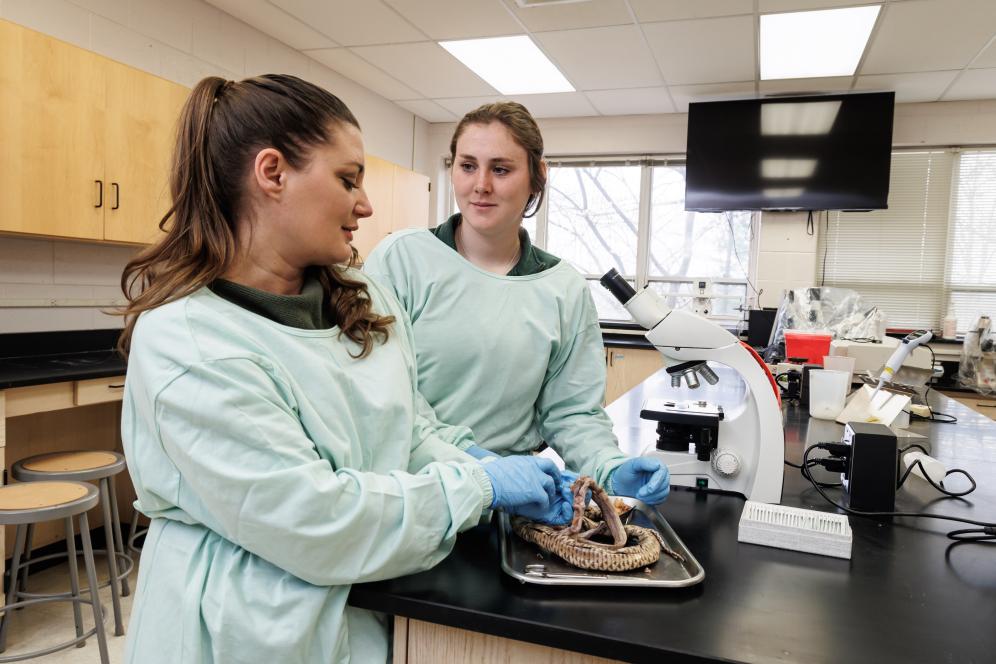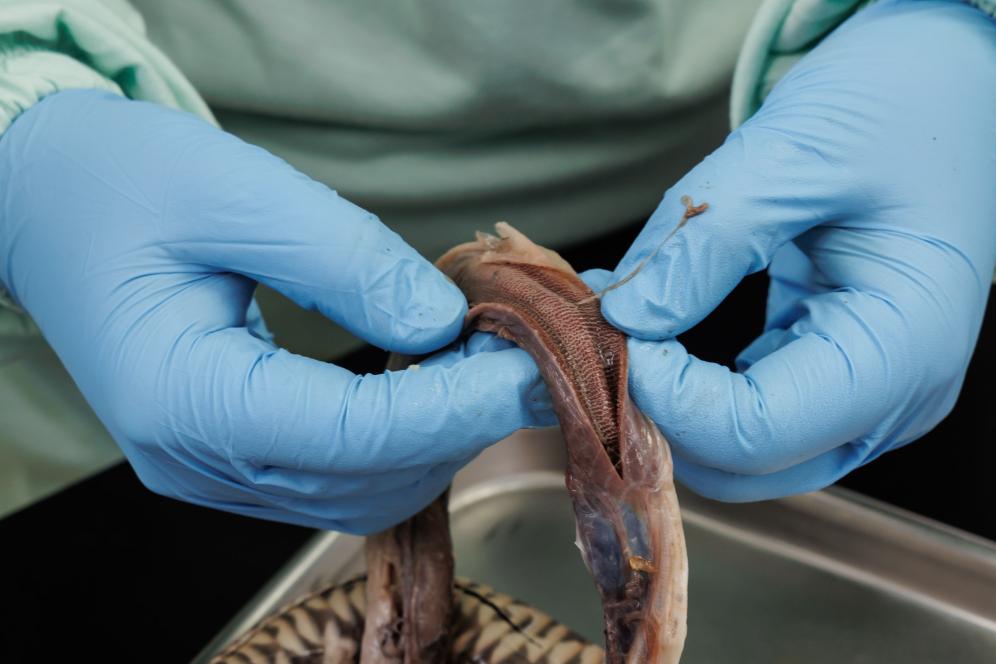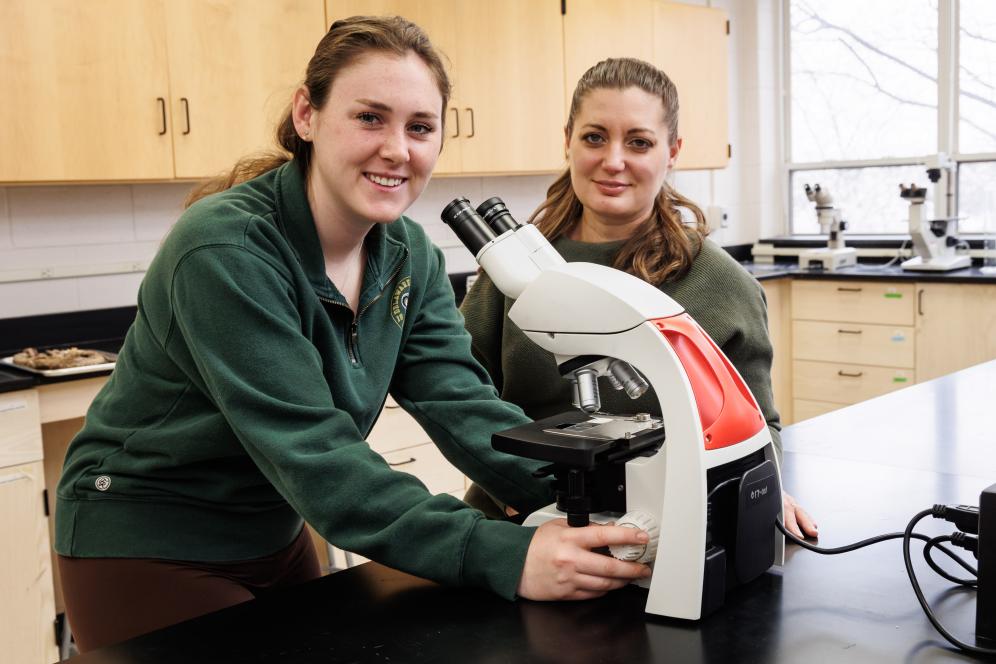
Assistant Professor, Department of Biotechnology and Conservation
How long have you been at DelVal?
I joined DelVal in 2018.
What brought you to DelVal?
Well, I spent several years working as a veterinarian in private practice and emergency medicine, and I loved it. One thing I really enjoyed was educating clients about their pets' health. That's where my passion for teaching first took root. So when the opportunity came to work with students again and dive back into the science behind veterinary medicine, I was all in. It's a chance to reconnect with the academic side of things that sometimes gets overshadowed in the hustle and bustle of emergency care and private practice.
What brings you the most satisfaction in your job?
The majority of the courses I teach are upper-level, so my students already have a solid foundation in basic science. But sometimes they struggle to connect the dots between, say, a cell receptor and how it relates to disease process and clinical signs in animals. It’s like they’ve got all these puzzle pieces but don’t quite see the bigger picture. So for me, the real satisfaction kicks in when I help them piece it all together and they finally grasp how everything fits and ultimately tells us the well-being of the animal. Seeing those lightbulb moments and witnessing their hard work pay off is incredibly rewarding for all of us.




How do you harness the experiential learning pillar of DelVal and put that into your everyday teachings?
We obviously have the hands-on labs, including the dissections from the necropsies. Not only do students necropsy a snake, they'll also necropsy a rat or a rodent of some type, as well as a chicken or other avian species. I feel like that gives them a broad kind of sense of the different species that they may come across.
In the clinical pathology course, our focus is less whole organismal based and more blood-based. We do a lot of looking at blood cells and evaluating those. We try to incorporate some of the clinical pieces into it, so we employ kind of a case-based approach to learning as well.
Also, even though I am in the small animal program, the large animal department has been very accommodating and allowing us access to the large animal side. We spend time processing some of the milk cultures for microbial studies and we get those right from the dairy center on campus. With that crossover we can blend a student’s dairy interest with the microbiology interest.
What are the characteristics of a successful student at DelVal?
I think initiative is important for success. We have a great body of students here that have a passion for animals and a passion for learning, and I think it's that passion for learning that's going to make students successful, not only here at DelVal, but beyond.
About Dr. Reichner
Dr. Kimberly Reichner joined Delaware Valley University’s faculty full-time in 2018. She is a licensed veterinarian and holds USDA class II accreditation. Her primary teaching responsibilities include Clinical Pathology and Pathology and Disease of Small Animals. She enjoys helping her students see how detailed scientific concepts come together to create the broader clinical picture.